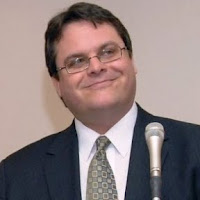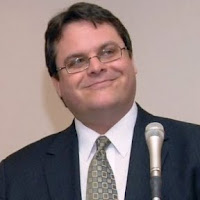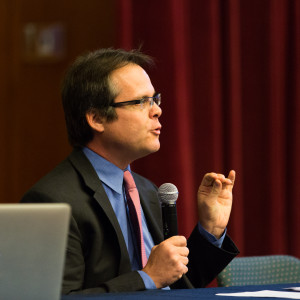The following is a transcription of the keynote speech Bill Taverner, MA, CSE, executive director of the Center for Sex Education, made at this year’s North Carolina Sexual Health Conference. This speech is especially timely, considering that September is Sexual Health Month. Considering a career in sexual health? This post is a must-read.
I want to start out by thanking my friend and colleague Tanya Bass for inviting me to give this talk. Moreover, I want to congratulate Tanya on organizing such a successful FIRST conference. Amazing, isn’t it? Can we have a nice round of applause for Tanya, and for the full planning team?
Tanya and I have been friends and colleagues for three years.
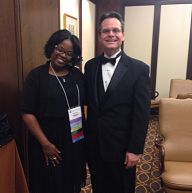
That’s us at the National Sex Ed Conference, a conference that Tanya has co-chaired, and continues to donate her time to generously. We’ve also worked on a number of other projects together, including co-training. I am going to talk a little more about our professional relationship later.
I want to thank Adam and Eve, based here in North Carolina, for underwriting the costs of our distributing How I Got Into Sex… Ed, which I think is a very appropriate book for this talk. Everyone should have a copy.
So How I Got Into Sex…Ed. Well, I’d like to start a little bit earlier than that. There’s been this thing going around on Facebook where people list their first jobs.
I haven’t thought about my first jobs in a long time, so I thought I’d share them with you.
One of my very first jobs was working at a gas station pumping gas. They had a guard dog named Chevis, and what I remember most about that job was that Chevis loved to masturbate. I mean, he REALLY loved to masturbate. I wish I could say I am making that up, but it’s true. When he was not barking at people, he was just doing his thing. Literally, doing his thing.
Next, I worked at The Children’s Place, as a stock boy, where one day my boss pointed to a section of the backroom and directed me to “get rid of them.” She meant the cardboard boxes that needed to be broken down, but I thought she meant the stacks and stacks of lumber, which turned out to be new shelving for the entire store. So…um…yeah, I crushed thousands and thousands of dollars worth of shelving in the trash compactor before my boss came back and discovered what I had done. True story. You want to hire me, right?
 Then in college I worked on the cafeteria line, where one day I was filling up a mop bucket with what I thought was a regular hose, but turned out to be a steam hose. I left it unattended in the bucket, and you can probably guess what happened next. The hose shot up when it was filled with steam, and I was facing in the other direction. The next thing I knew, I was in the emergency room with second and third degree burns on my butt.
Then in college I worked on the cafeteria line, where one day I was filling up a mop bucket with what I thought was a regular hose, but turned out to be a steam hose. I left it unattended in the bucket, and you can probably guess what happened next. The hose shot up when it was filled with steam, and I was facing in the other direction. The next thing I knew, I was in the emergency room with second and third degree burns on my butt.
Great first jobs!!
I worked for a whole two days at a factory where they put discount stickers on LP records. At that job, they played “I Got My Mind Set On You” over and over. To this day, I associate that song with monotonous work.
And finally, I worked for Mr. Mortgage for several months, where I had no clue what I was doing. No matter how many times it was explained it to me, I could not understand adjustable rates, amortization, deferred interest, etc. I did understand points, because that was how I was paid, and in my entire time there I made exactly one sale. I’ve always felt bad for that couple, making such an important purchase from someone who was clueless.
So, take a moment to think about these jobs, and talk at your tables and decide which job helped prepare me for a career in sexuality education.
The answer is all of them. At the gas station, I learned at the age of 15 that masturbation was a normal behavior, seen in animals, something I didn’t learn at my all boy’s Catholic high school.
At The Children’s Place and the cafeteria, I learned the importance of following directions very carefully.
At the record factory, I discovered the importance of finding a job that you really, really love.
And at Mr. Mortgage, I learned to find something that you’re really good at, while maintaining the highest of ethics.
Let me tell you about my first attempt to get a job more clearly related to sexuality. After I finished my undergraduate studies the University at Albany in New York in 1990, I decided I was going to find a job or an internship.
There was an organization called SIECUS in my textbook. A sexuality organization just a few miles away from where I lived in Staten Island, New York. So I hopped on the ferry and went to the address listed in my textbook in downtown Manhattan.
The building had a doorman, and I told him, “I’m here for the sex job.” He replied, “You need to leave.” So I thought, oh yeah…they must be dealing with protesters and infiltrators all the time. So I told the doorman, “It’s ok. I’m sex positive.” And he said, “No, seriously. You need to leave.”
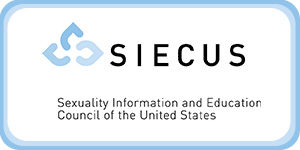 So I left the building and sat in the park until his shift was over and tried my luck with the next doorman. No luck. It wasn’t until months later that I had learned that SIECUS had moved to midtown.
So I left the building and sat in the park until his shift was over and tried my luck with the next doorman. No luck. It wasn’t until months later that I had learned that SIECUS had moved to midtown.
I tell this story because I think it illustrates how difficult and frustrating it can be to develop a career in sexual health. Even after I found the right building, it was still pretty hard.
So about 10 years ago, I wrote an article with tips based on things that I learned, and I want to share that with you today.
Be Realistic. Expand Your Skills
The first tip is to be realistic and expand your skills. Many of you are at this conference because you feel passionate about sexual health. That’s great, but you may have also noticed that there are not that many opportunities in our field. So you really need to make yourself noticed, and you can do this by expanding your skills.
If you are considering a higher degree, there are great graduate programs in human sexuality, like the one at Widener University. But also consider getting a degree in public health, social work, or health education. These less specialized areas also help you to broaden your options and develop a backup plan until you can land your dream job.
Consider a business degree. There is a great need for business savvy when running sexual health organizations. Think of how valuable you will be to a struggling organization coming in with business skills!
Try to think of all the skills needed to do work in sexual health, not just sexual knowledge, counseling, and teaching skills. You really need to think of yourself as a business person, and that means skills in planning, marketing, fundraising, grant writing, and budgeting. Try to develop these skills, which will be essential whether you work for an organization or on your own.
Find a job that allows you to work with people
My first real jobs as an adult were not in the field of sexuality. I worked at several social service organizations while I was getting my graduate degree in human sexuality. So while I was working in a group home, I also took it upon myself to be in charge of creating and running sex ed programs for the residents. This provided great experience, and allowed me the opportunity to practice. It might be tempting to get a job just to pay the bills, but think strategically. Find a job that gives you access to people—residential programs for teens; substance abuse treatment programs; group homes for people with intellectual disabilities; adult living communities. And then run their sex ed programs.
Make yourself invaluable
Learn all parts of what your organization does, not just your own sexual health silo. Ask to have the budget sheet explained to you. Ask if you can help write a grant proposal. Trust me, your boss will be thrilled and you will be learning marketable skills that will help you land better jobs, or be successful if you pursue a solo career.
Think of it this way. Imagine a nonprofit has two great candidates. Both have outstanding teaching or counseling skills, but one of them helped secure their previous employer a $100,000 grant. Which one is going to get the job?
Network online
This next tip did not exist when I wrote my essay 10 years ago, because Facebook and Twitter didn’t exist then. (And they certainly didn’t exist when I was trying to find SIECUS.)
Become a strategic user of social media. Follow or friend people who are leaders in the field, or who otherwise might open doors for you. Like and retweet their posts. Be careful not to overdo it. If you start liking their vacation photos, or pictures of their pets or significant others, it can start to get a little creepy.
Recognize that famous people in sexuality are just people too. The comedian Aziz Ansari commented he really DOES read every tweet that is written about him, and he says that anyone who says they don’t is a liar. This is also true of people in our field. Even if they don’t reply, they do notice.
When you repost, add your own comments. They can be kiss-ass, like “I just attended an amazing conference organized by Tanya Bass!” And then tag Tanya Bass. Use this feature with discretion. If you post an article with a message that says “Dr. Crane, what are your thoughts about this?,” be sure you’ve done your homework and that you are asking about something that falls into her area of expertise.
People can use this technique very skillfully. One person was hoping to do an interview with former U.S. Surgeon General Joycelyn Elders. A friend tagged me and said, “I think Bill might have contact info for her.” I did, and I helped make an introduction. That person, somewhat new in the field, played matchmaker and the person who interviewed Dr. Elders was very thankful for her making the introduction.
So let me tell you more about how I met Tanya. Tanya was frequently tweeting about the National Sex Ed Conference, which is run by my organization. Then she tweeted about a lesson plan I wrote. I noticed, of course, and started wondering: who is this person? So I looked her up and discovered she had applied for a scholarship and so I had her CV. When I saw her background in organizational management, I asked her to be In CHARGE OF the scholarship program. The next year, I asked her to co-chair the conference.
I am not saying that Tanya posted and tweeted deliberately to get my attention. I’m just saying that whatever her motivation, it was a smart thing to do and a great use of social media.
You want the person to remember you… in a good way. You want them to know something about you.
Also be aware of what your online presence says about you. If your profile says, “Orgasms are the best!” you might be right, but you also might be limiting the number of people who would consider hiring you. Adam and Eve might love it. The North Carolina Department of Health might not.
I had a former staff member, Megan Andelloux. Maybe you know her? The founder of the Center for Sexual Pleasure and Health. Well, Megan and I texted this morning and she agreed to let me share this story.
Megan worked with me in the late 1990s and, some time after I hired her, she added a bumper sticker on her car. Let me not read it to you. Let me just show it to you. [Show picture of bumper sticker saying “I heart my c***.”]
Now Megan is arguably the most sex-positive person I’ve ever met. But I tried to help her understand that parents and teachers who saw her car in the middle school faculty parking lot where she taught might not love it as much as she did.
Now I know that some of you may be outraged at my suggestion that we need to censor ourselves. We should be able to put whatever bumper sticker we want on our cars. You’re right. It’s unfair. But we also need to be aware of the forces trying to villainize and misrepresent our work. Let’s not give them ammunition or allow them to seem more reasonable than us to the general public.
All these years later, Megan agrees with me and she says she doesn’t put ANY bumper stickers on her car!
As it relates to career development, I encourage you to check your social media and online presence to ensure there is nothing that might derail your opportunities.
Network in person
It’s hard to get yourself noticed. There are almost 200 people here—some well known faces, and some brand new. How do you stand out? One way is to ask an intelligent question. Let me tell you a story of when I first heard former U.S. Surgeon General David Satcher speak. He was giving a keynote in front of 800 people at an AASECT conference, and I had just been hired to be the new editor of the American Journal of Sexuality Education. I noticed that when Dr. Satcher was taking questions from the audience, he also had people saying their affiliations.
So I used the opportunity to promote my new journal. I said, “I’m Bill Taverner, editor of the American Journal of Sexuality Education…” and before I could ask my question, Dr. Satcher, a polished politician, responded, “Thank you very much for your outstanding journal, which provides a great service to the professional community.”
Now, to be clear, the journal did not exist yet. I had been hired, but not a single issue had been printed. Still, I strategically used the moment to introduce myself not only to Dr. Satcher but also to 800 colleagues who took notice of who I was, and a journal they should’ve been reading. And what was my question? I have no idea. But remember that was not the point of my asking. I am sure I lobbed a softball and I am sure he knocked it out of the park.
Now, take a moment to think about something you want other people to know about YOU. Introduce yourself to someone at the table, finding a way to work that quality or skill or accomplishment into the conversation.
Give time
It’s hard, isn’t it? It takes practice. I think being able to brag about yourself, just a little, is important. No one else is going to do it for you.
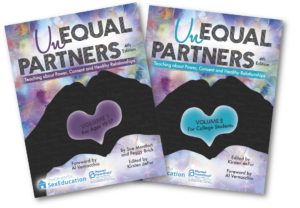 Last night, I met someone who had contributed a lesson plan to the book Unequal Partners, which my organization published. She didn’t brag about it. Tanya did. But, the author could’ve done it by saying, “I was so honored to be a contributing author to Unequal Partners.”
Last night, I met someone who had contributed a lesson plan to the book Unequal Partners, which my organization published. She didn’t brag about it. Tanya did. But, the author could’ve done it by saying, “I was so honored to be a contributing author to Unequal Partners.”
(By the way, notice what I did there. I just bragged about Unequal Partners, didn’t I? And I didn’t say “MYYYY organization published a great book!” I just dropped it in there that we had published the book.)
Here is another way to do it. “I want to thank all the creative participants in my workshop on sexual consent.” You are thanking them… but you are also telling people, “I do a workshop on sexual consent.”
I am no David Satcher but, maybe, as I continue, you can think of questions you might want to ask, and get noticed in front of your peers! And maybe I will compliment your work that doesn’t exist.
You can also email someone after they present a workshop or give a talk. The formula is simple: “Hi Dr. So-and-So. I just wanted to tell you how much I loved your presentation. I wanted to ask you about…” and then fill in the blank with an easy question or observation related to the talk. Remember what Aziz Ansari said. We are all human. We like to know that people are interested in our work.
Finally, ask to be introduced to more experienced professionals. We all know someone who knows someone. Utilize your networks.
Find people that can open doors
For me, that was Bob Francoeur and Peggy Brick. Bob was one of my professors on an international studies tour in Denmark. I was walking down the Stroget (the famous Copenhagen street) and the cover of Penthouse Magazine caught my eye. Not because of the model, but because I saw Bob’s name on the cover (which was otherwise all in Danish). I came back to class and asked Bob why his name was on the cover of Penthouse. He thought long and hard and finally replied, “Hmmm. I guess they decided to print my article on pheromones.” WHO IS THIS GUY, I thought, that he doesn’t even remember when magazines are publishing his work?
Well it turned out he was a very well published editor and author who was then in the process of putting together the International Encyclopedia of Sexuality. Right then and there, I decided I was going to be Bob’s go-to student. I would do all his grunt work: grade his papers, be his teaching assistant, grade more papers, look up citations, whatever he needed. Later, we became good friends, and also co-edited several books.
With Peggy, it was tougher. I knew she was a leader in the field when I interviewed with her for an entry level sexuality educator job in 1991. She told me I was too inexperienced and to contact her when I had more experience. I took her literally. And so, a year later, I wrote her a letter outlining my accomplishments and new skills. No jobs available, said Peggy, and so I wrote her the next year with another update. And the next year. And the next year. I wrote to Peggy for seven years until, in my last letter, I enclosed a copy of my first book (written with Bob), which included a reprint of an article Peggy wrote. Peggy called to tell me she was retiring and asked if I would like to interview for her job. That was 18 years ago, and I am still with the same organization.
So think about it. Who are people in your networks who can open doors? What friends or colleagues do you have who know someone else who can be an important connection for you?
I am going to ask you to take some time to talk with people at your tables and share some ideas.
Read.
One of the best things you can do to help develop a career in sexual health is read this book! There are 61 essays here! Pay close attention to the diverse paths and often strategic methods people followed to establish careers for themselves, and figure out which ones might work for you.
Also read, just to keep yourself up to date as a professional in this field. Understand what is going on in and around our field for the full cultural context.
Ask colleagues, as well as more experienced professionals, what they think professionals in sexual health should be reading. You can ask this right now on Facebook and Twitter. Go ahead!
Write.
The easiest path to getting published is to write a book review. And if you do, don’t be afraid to say something a little bit different. I know a graduate student who critiqued a book written by a top expert in LGBT studies. The writer made a lot of fair points, and also caught the attention of the author of the book who, in turn, wrote a rebuttal to the book review.
Notice what the student did, positioning himself in a way that got him noticed. There was the expert, and now there was him critiquing the expert. And he did it respectfully. Brilliant.
A former college professor of mine did something similar, critiquing a textbook written by Dr. Ruth. Who critiques Dr. Ruth?! Well, she did.
There are a TON of new books just waiting to be reviewed. As the chief editor of the American Journal of Sexuality Education, I can assure you we welcome book reviews. And our book reviews go through peer review, so you can say you have a peer-reviewed journal article. This is an easy one, folks.
Present.
 Submit an abstract for major conferences. You can do it for this one, or for other sexuality conferences, including the National Sex Ed Conference. Team up with a more experienced trainer and learn from them.
Submit an abstract for major conferences. You can do it for this one, or for other sexuality conferences, including the National Sex Ed Conference. Team up with a more experienced trainer and learn from them.
You can also present at non-sexuality conferences. Find your special niche. Look for very narrow, underserved areas. Present on sex and disabilities at a conference on intellectual disabilities. Sex and aging at a conference on aging. Helping doctors talk to patients about sex at a medical conference.
Pick a lesson plan with easy-to-follow steps from a publication by the Center for Sex Education and present an entire workshop based on that lesson. We don’t mind! (Just give us credit!) Learn the basic lesson plan formulas that make for a memorable interactive learning experience without PowerPoint.
Try not to worry about honoraria and fees when you are starting out. I know this is a tough one. We all need to earn a living, and the need may be urgent. Definitely ask if there is a fee or honorarium available. If there is not, try to utilize unpaid opportunities to gain experience and visibility.
Get Feedback.
Actively seek feedback on everything you do, including your writing and your presentation skills. You don’t have to follow every recommendation, but you will learn a lot from other perspectives. Learn to value feedback as an essential part of your work.
This speech was reviewed by a trusted colleague who made great edits and gave some challenging feedback. My work is better when others make me think. Your work will greatly improve, too.
Be Nice.
I have two stories I want to tell you about being nice. First, as a young professional, I was at a conference where I met Marty Klein. THE famous author and speaker Marty Klein! I stood by a table with several other people who wanted to meet him. Marty noticed my black suit and tie (I was trying to impress) and mistook me for a waiter, asking if I could bring him more water.
I could’ve responded with indignation. (How dare he not recognize me as the emerging sexologist that I was!) Or I could’ve laughed it off. I chose to laugh it off. I said something like, “Sure, let me get you some water. But then I want to ask you about your book Let Me Count the Ways.” I decided I wanted to be nice, and maybe not take myself so seriously.
Another time, I was giving a presentation where I had participants place stickers on laminated sheets. After the activity, during lunch, I removed the stickers so the laminated sheets would be ready for the next time. This was a pain. A participant came over, saw what I was doing, and just started to help.
I won’t forget this person.
The simple act of being nice goes a long way in our field, a field where people are not always so nice. Find other ways to be nice. Compliment great work. Offer to help. Share your own work. Be authentic.
Experienced professionals should be nice too. I scan reviewer feedback on articles submitted to the American Journal of Sexuality Education and sometimes there are comments that are downright mean. I scrub these comments when I see them, and stop sending articles to people who are mean. Really. Who needs that?
Be Humble.
This one was difficult for me to include because I haven’t been in others’ shoes. It might also sound contradictory after all of these tips—some brazen—about getting yourself noticed. But it is something I have heard from a lot of experienced sexuality educators, and so I thought I would share my thoughts about it.
First, let me be clear. I don’t think that “be humble” is the same as “be submissive” or “be subservient.” Being humble means recognizing the contributions, knowledge, and expertise that more experienced professionals have in relation to your own.
Let me give you an example. I am good friends with Beverly Whipple, the accomplished scientist who is most famous for her work on the G spot. When we first met, I called her Dr. Whipple until she told me to call her Beverly.
Let’s say we get into a discussion about the G spot, and I point out an article I read that it doesn’t exist. She patiently tells me why the article is flawed and I disagree, telling her I think she’s wrong. Yes, I am entitled to my opinion. But the reality is that I cannot go toe to toe with her on this. For that matter, if we are discussing any matter of sex research, I need to remember that she’s got 50 years of scientific research on me. Beverly and I are equals as human beings. But we are not equals as sex researchers.
Your voice needs to be heard, but try to recognize and appreciate the wisdom that experienced professionals bring to the table as well.
And a few thoughts for experienced professionals
Be nice. (It’s worth saying again.)
Be accessible.
Be willing to pay it forward.
Be a mentor.
Recognize that Millennials think differently, and this can create both challenges and GREAT rewards.
Find emerging professionals in the field, especially in your unique areas of expertise, and be someone who can guide, listen, and offer feedback.
Be especially accessible to people whose voices have been marginalized or who have been denied opportunities in sexual health.
Don’t just hang around your experienced colleagues at conferences.
Be aware of your presence. (Your question or comment may carry extra weight.)
I remember how freaked out I was when the legendary Sol Gordon sat in my workshop at an AASECT conference. If he had texted throughout my session, I would’ve thought OMG I am boring Sol Gordon.
Remember what it was like starting out in this field, and make every effort to nurture those who will carry on the torch.
And some final words from my old friend and mentor Bob Francoeur, who died just four years ago.
“The future is what we decide to make it. We are all co-creators of the world to be.”
Thank you.



